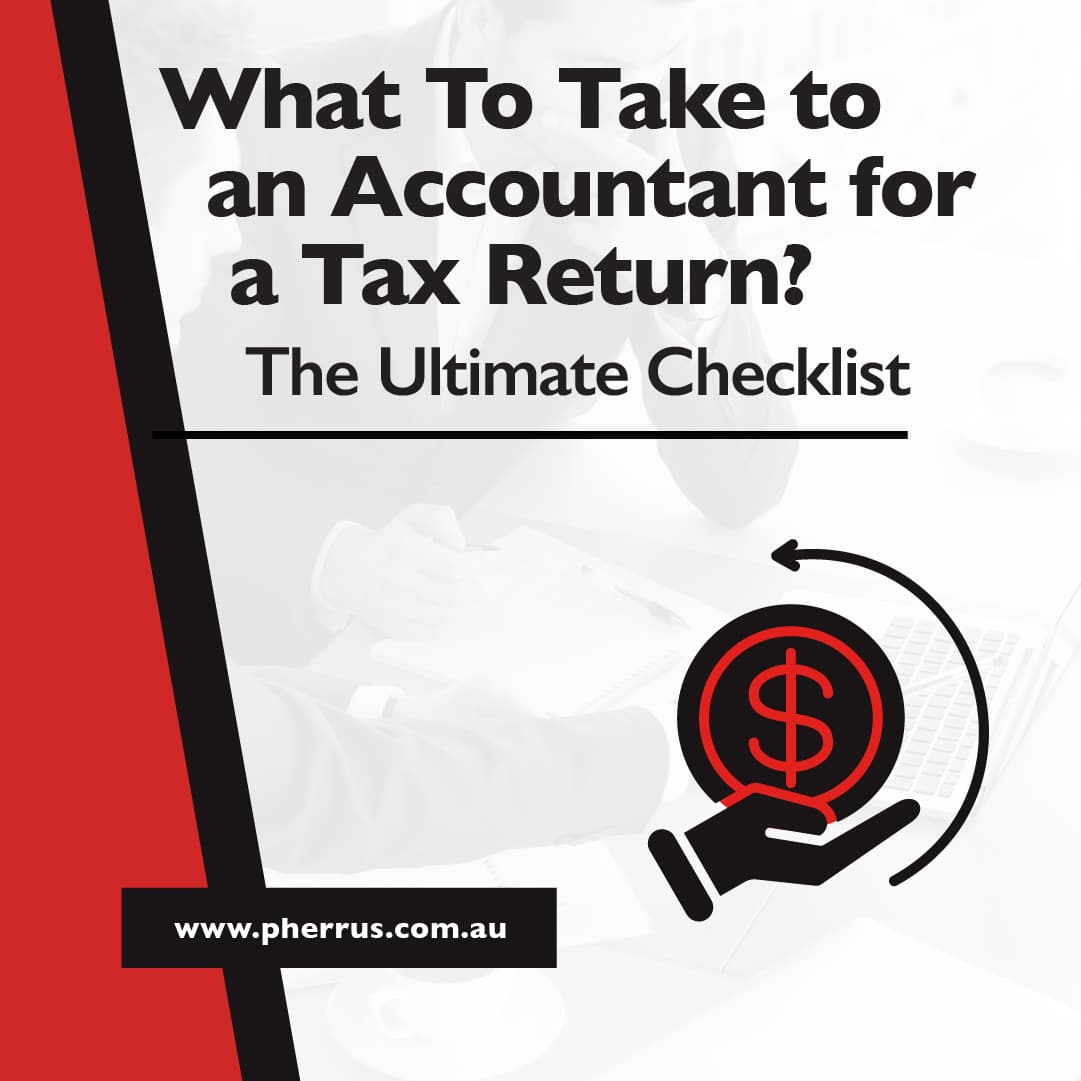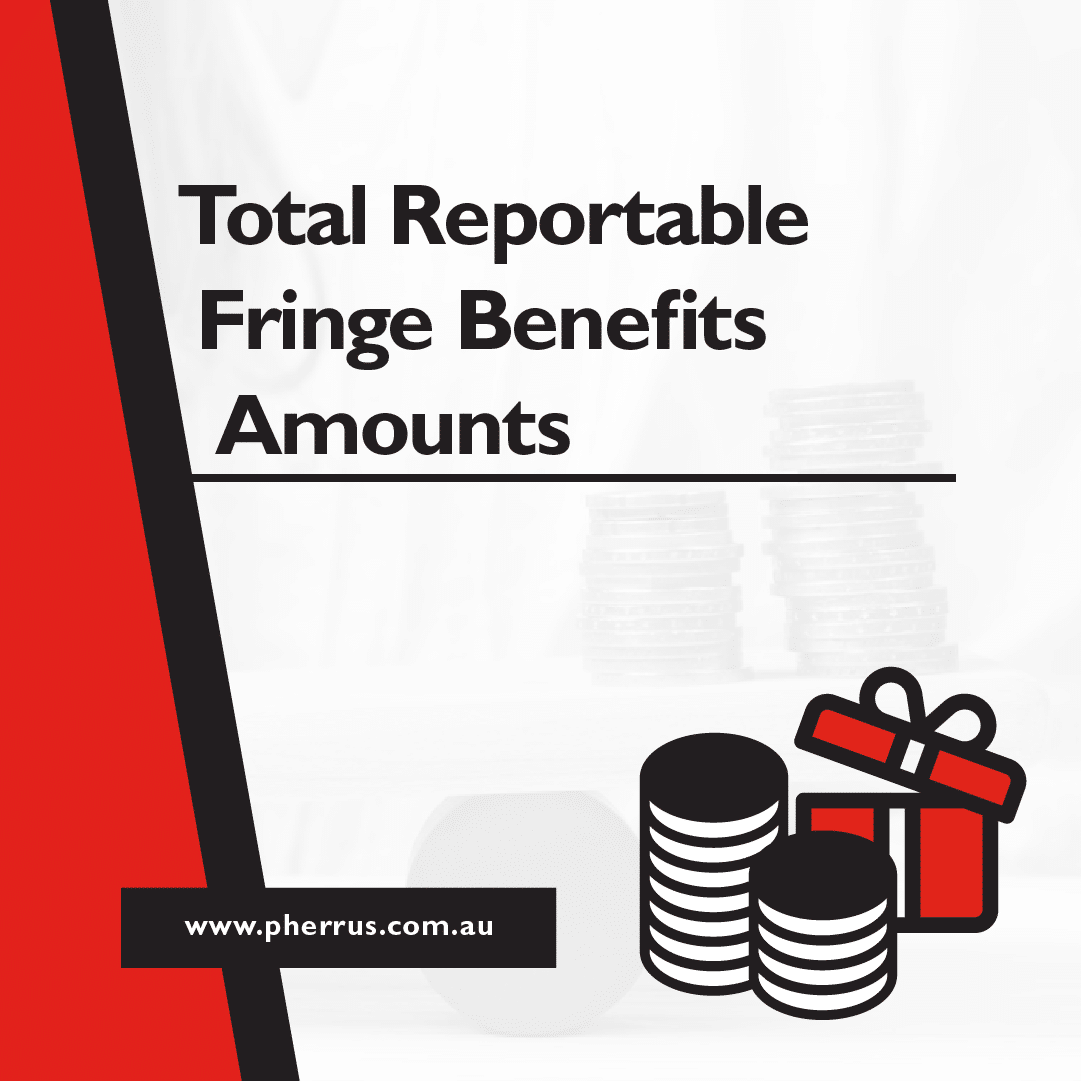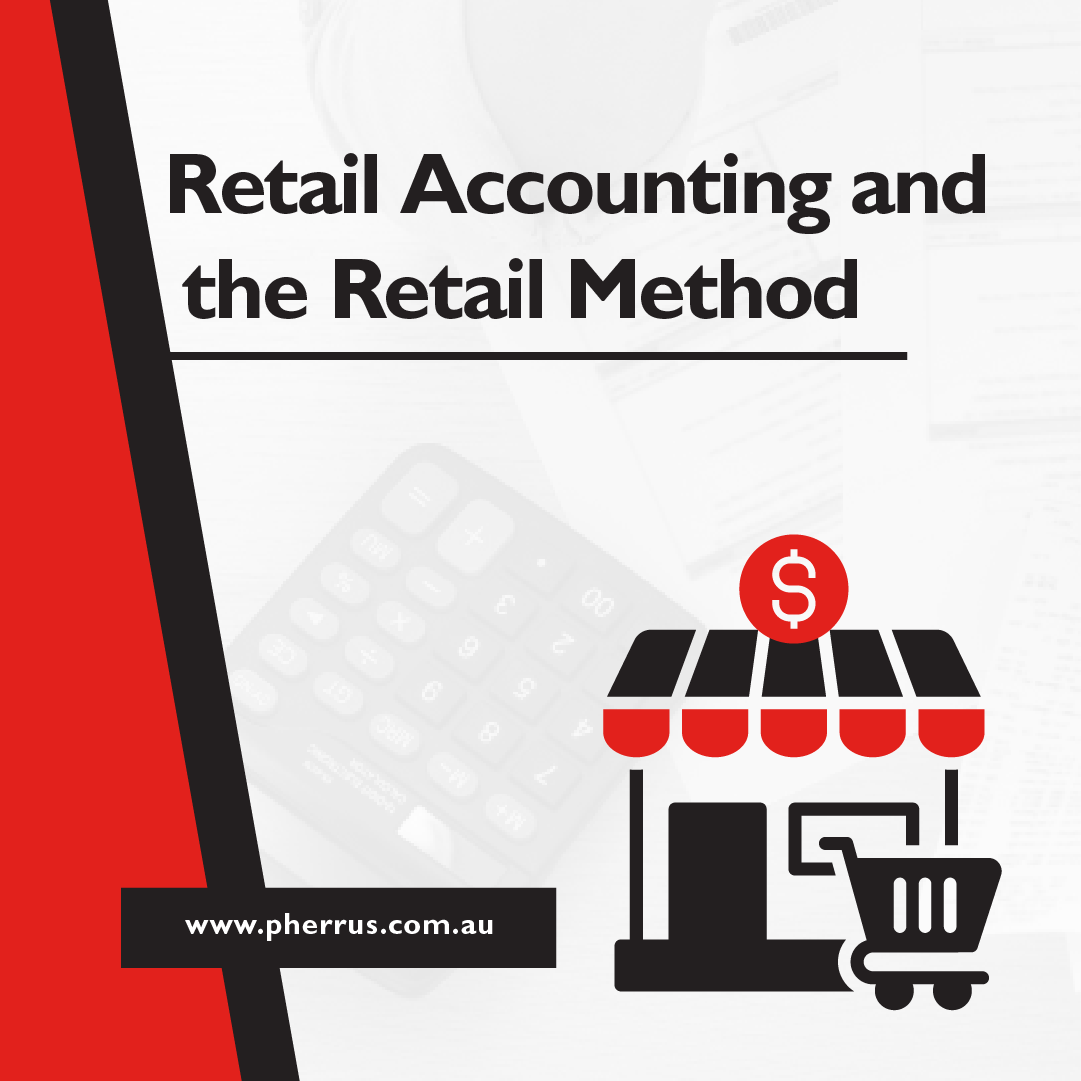Being unprepared for your tax agent at tax time can lead to delays, extra fees, and a whole lot of stress.
Forget one essential document, and you can be back to square one!
But there’s no need to worry; we’ve put together the ultimate checklist for what you should take to your accountant for a hassle-free tax return.
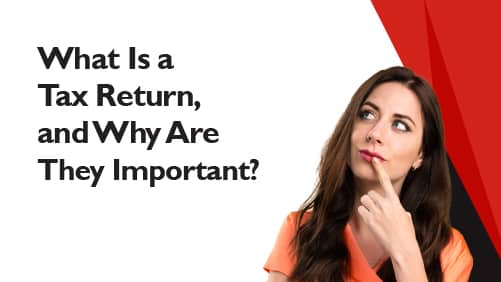
What Is a Tax Return, and Why Are They Important?
A tax return is a legally required form to report your income, expenses, and other financial details to the Australian Taxation Office.
Filing your tax return correctly and on time is crucial.
Firstly, if you’ve paid too much tax during the year, you’ll get a refund from the ATO.
But you won’t see a cent unless you file your tax return!
Secondly, filing late or messing up your paperwork could land you in hot water with the ATO, leading to fees or legal issues.
Now, let’s find out what to take to an accountant for a tax return at tax time.
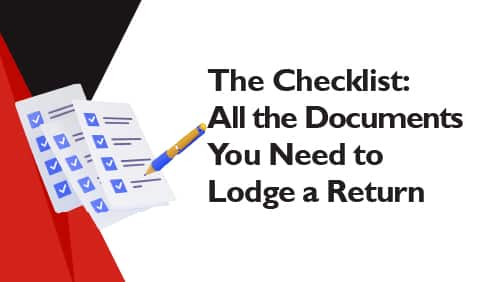
The Checklist: All the Documents You Need to Lodge a Return
Money Coming In
Salary
- Income statements: Previously called “PAYG summaries,” these show your earnings and how much tax was withheld. They’re available through your myGov account or from your employer.
- PAYG summaries: If your employer still provides these instead of digital income statements, bring them along. They contain the same information about your earnings and taxes.
- Bonus or commission slips: If you’ve earned any bonuses or commissions, you should find details on your payslip or a separate statement from your employer.
Allowances
If you receive any of the following allowances, you’ll need to provide documentation in the form of receipts, statements, or payslips.
- Work-related expenses (office supplies, software subscriptions, skill development courses)
- Car allowance
- Meal allowance
- Uniform or clothing allowance
- Travel allowance
- Tool and equipment allowance
- Other special allowances (hazard pay, on-call allowances)
Any Interest Earned
- Bank account interest statements: Your bank usually sends you an annual statement, or you can download it online. This shows the interest you’ve earned on savings and checking accounts.
- Capital gains records: If you’ve sold assets like stocks or property, you’ll need documentation of the sale and the gain you made, such as a contract of sale, settlement statements, or broker transaction records.
- Superannuation lump sum payment statement: If you’ve received a lump sum payment from your superannuation, you should’ve received a statement outlining the taxable and non-taxable portions.
- Dividend statements: If you own shares that pay dividends, you’ll have statements for these showing the dividend amount and any tax already paid on it.
Any Other Incomes
If you own a rental property, you must provide information about its generated income via bank statements or a ledger.
If you earn interest or dividends from overseas accounts or investments, that’s reportable, too. Documents can include foreign tax statements or other income records.
Money Going Out
Insurances and Banking
- Life insurance premiums: If your life insurance is tax-deductible, bring the premium receipts or annual statement as proof.
- Income protection premiums: You’ll need documentation (generally an annual statement) that outlines the premiums you’ve paid over the tax year.
- Bank fees: Fees related to investment accounts or business banking might be deductible. They’ll be on your year-end bank statement.
- Loan interest: The interest might be tax-deductible for some types of loans. Bring these statements if applicable.
- Private health insurance: If you have private health insurance, you’ll receive a statement for your premiums that might affect your tax obligations.
Car and Travel Expenses
If you use your car for work or have other travel-related expenses, these could be deductible.
Keep all records of such travel via
- Vehicle log books
- Fuel receipts
- Parking receipts
- Toll records
- Public transport tickets
- Ride-share or taxi receipts
- Airfare and accommodation receipts
Work Expenses
Keep records and receipts for any work-related expenses, such as
- Office furniture, utility bills, phone and internet usage, or rent if you work from home.
- Work materials like office supplies, software licences, or specialised tools.
- Uniforms and protective gear required by your employer.
- Courses and training such as professional development courses, workshops, or webinars.
Employees
If you’re an employer, you must have the following documents concerning your employees.
- Payroll: Records showing each employee’s gross and net pay, tax withheld, and any other deductions. Plus, invoices and payment records for any hired freelancers or contractors.
- Payment summaries: PAYG payment summaries or digital Income Statements provided to each employee at the end of the financial year.
- Superannuation contributions: Statements showing all contributions made to employee superannuation accounts.
- WorkCover or workers’ compensation: Records of any premiums paid for employee insurance or claims made.
- Fringe benefits: Documentation for any fringe benefits provided, such as cars, loans, or health insurance.
All Other Expenses
Keep records, statements, and receipts of the following for your tax accountant.
- Records of GST paid on business purchases and expenses (if your business is registered for GST).
- Business Activity Statements (BAS) detailing quarterly GST obligations.
- Investment expenses such as fees for investment advice or managing investment accounts.
- Tax agent fees for preparing your tax return.
- Donations to registered charities.
- Legal fees incurred for issues related to producing income.
- Business start-up costs.

Other Tips to Keep in Mind
It’s a good idea to sort all the documents you need by category before seeing your tax accountant, as this will help them work more efficiently.
Also, consider making digital copies of all your documents as a convenient backup that can be easily shared.
Keeping digital records can also help you stay organised throughout the year.
Then, when tax time rolls around, you’re ready to go with minimum fuss for maximum tax deductions!
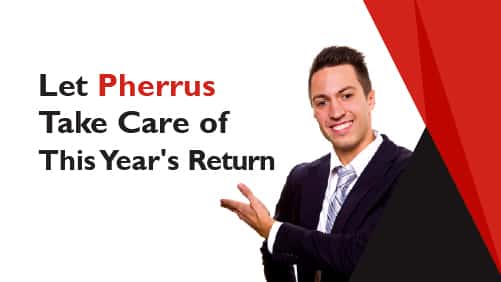
Let Pherrus Take Care of This Year’s Return
Don’t leave money on the table this tax season.
Trust Pherrus’ tax agents with all your necessary documents to maximise your return and make filing a breeze!
Fill in our online form today or call +61 (02) 9099 9109 to book an appointment at our Bella Vista office in Sydney, NSW.


